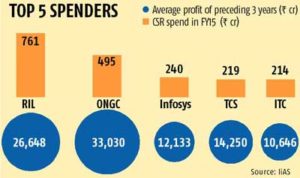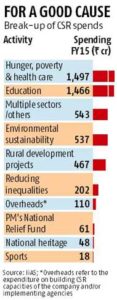 India’s e-commerce market is likely to touch $38-billion-mark in 2016, a 67 per cent jump over the $23 billion revenue it clocked last year, according to the Associated Chambers of Commerce and Industry (Assocham).
India’s e-commerce market is likely to touch $38-billion-mark in 2016, a 67 per cent jump over the $23 billion revenue it clocked last year, according to the Associated Chambers of Commerce and Industry (Assocham).
“Increasing internet and mobile penetration, growing acceptability of online payments and favourable demographics has provided the e-commerce sector in India the unique opportunity to companies connect with their customers,” according to the Assocham’s latest report.
Buying trends during 2015 have witnessed a significant upward movement due to aggressive online discounts. India’s e-commerce market was worth about $3.8 billion in 2009, it went up to $17 billion in 2014 and to $23 billion in 2015 and is expected to touch $38-billion mark by 2016, said D.S. Rawat, Secretary General, Assocham.
Mobile commerce
Mobile commerce (m-commerce) is growing rapidly as a stable and secure supplement to the e-commerce industry. Shopping online through smart phones is proving to be a game changer and industry leaders believe that m-commerce could contribute up to 70 per cent of their total revenues, according to the report.
Mumbaikars had left behind all other cities in India shopping online in 2015. While Delhi residents rank second, Ahemdabad came third, Bangalore fourth and Kolkata fifth in their preference for online shopping in 2015.
“The customer is connected 24×7 through their smart phones, tablets and other mobile devices which is leading to a gradual evolution of e-commerce into mobile commerce and there is an issue of convenience which also leads to impulsive buying,” Mr Rawat said. The browsing trends, which have broadly shifted from the desktop to mobile devices in India, online shopping is also expected to follow suit, as one out of three customers currently makes transactions through mobiles in Tier-1 and Tier-2 cities. In 2015, 78 per cent of shopping queries were made through mobile devices, compared to 46 per cent in 2013, said Mr. Rawat.
The highest growth rate was seen in the apparel segment, almost 69.5 per cent over last year followed by electronic items by 62 per cent, baby care products at 53 per cent, beauty and personal care products at 52 per cent and home furnishings at 49 per cent. The most important contributing factor to the rapid growth of digital commerce in India is the increase in the use of smartphones. Mobiles and mobile accessories have taken up the maximum share of the digital commerce market in India, according to the paper.
Online shoppers
Almost 45 per cent of online shoppers reportedly preferred cash on delivery mode of payment over credit cards (16 per cent) and debit cards (21 per cent).
Only ten per cent opted for internet banking and a scanty seven per cent preferred cash cards, mobile wallets and other such modes of payment.
As per the findings, many small companies have also established online stores for group buying, which enable customers to obtain goods at a discount so long as a certain number of people make the purchases.
Shopping centres, whole sale markets and supermarkets should create their online stores to reduce costs and develop product-tracking systems, Mr Rawat said.
Among the age segments, the 18-25 years age group was the fastest growing age segment online with user growth being contributed by both male and female segments, it was said in the paper.
The survey highlights that three per cent of regular shoppers are in 18-25 age group, 52 per cent in 26-35, eight per cent in 36-45 and two per cent in the age group of 45-60.
Sixty-five per cent of online shoppers are male with females constituting 35 per cent. The products that were sold most in 2015 were mobile phones, iPad and accessories, MP3 players, digital cameras and jewellery, among others.
As per the study, there would be more than a five to seven-fold increase in revenue generated through e-commerce compared to last year with all branded apparel, accessories, jewellery, gifts, footwear available at a cheaper rates and being delivered at the doorstep. The most popular among the e-commerce websites — Snapdeal, Myntra, Flipkart, Amazon, Jabong and others — have been doling out massive price cuts or discounts on purchase of popular brands of apparels, footwear, electronic goods, coinciding with the year end.
According to the report, the one of the driving factors for the online shopping is the age profile of the consumers who are young, between 15-35 years. This segment is quite net savvy and enjoys doing new type of shopping experience, virtually from their desk top in office, lap tops at home or even Android-based phones.
Source: http://www.thehindu.com/business/ecommerce-industry-to-cross-38-billion-this-year-assocham/article8058892.ece








